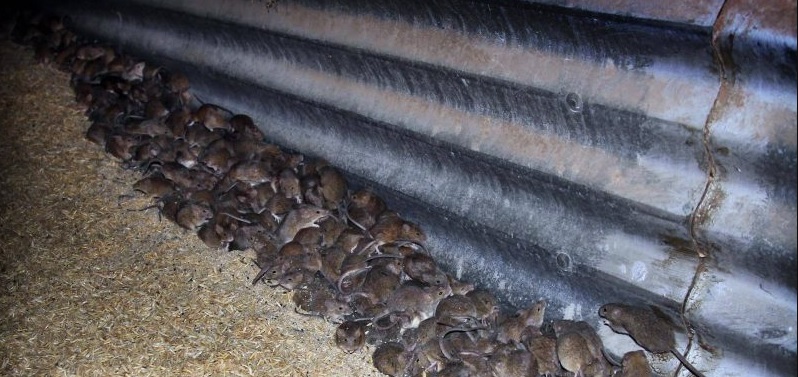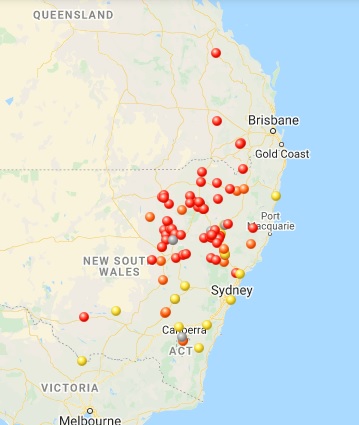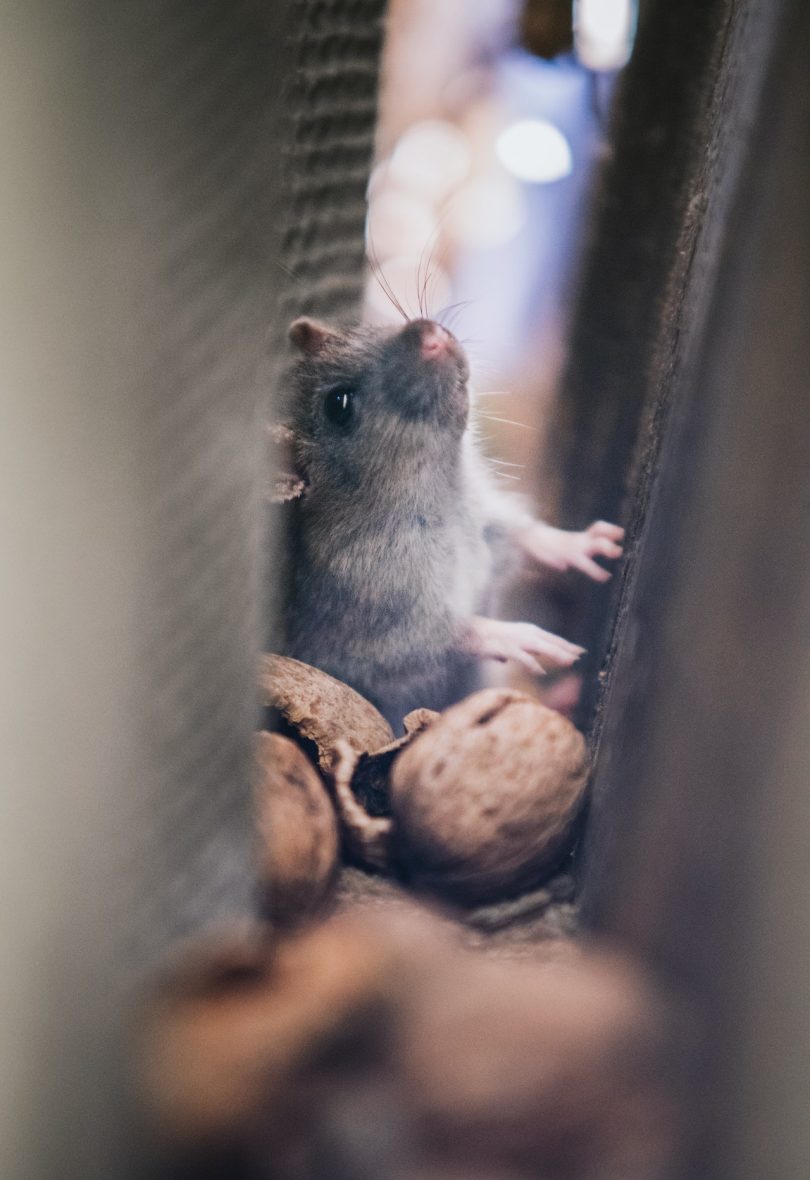
As mice reach plague numbers across NSW, the call has come from farmer advocate group NSW Farmers for urgent action from the NSW Government to support farmers and rural communities in combatting the escalating plague. Photo: Supplied.
A plague of mice continues to surge across the state with reports they are now rising in numbers in the southern part of NSW and the ACT just as farmers prepare to sow their cereal crops.
Mouse populations have spiked over the past 12 months as the farming regions on the eastern seaboard have benefited from solid rainfall, leading to improved crop-growing and providing the rodents with favourable conditions for eating and breeding.
Elevated mouse populations have been recorded from Central Queensland down to northern and central west NSW and into western Victoria.

Grains Research and Development Corporation-supported website allows farmers to access and contribute to mouse monitoring reports from across the country. Image: Supplied.
Not quite at epidemic proportions in the south east of the state, if shop shelves are the barometer of mouse infestation, the pickings are starting to become slim in Young, Cootamundra, Boorowa and Yass, for instance.
The owner of Jim’s Pest Control in Yass, Glen Wynn, said he’s been getting a lot of inquiries about mouse and rat control lately.
“It’s not as severe as you cross the road and you’re treading on them, but we shouldn’t be dealing with rodents at this time of year, it’s just bizarre,” he said.
This week’s cold snap with overnight temperatures slipping down to six and eight degrees, the rodents will be heading indoors presenting more of a migraine – than a headache – to householders and farmers.
Most people realise they have a rodent problem by seeing their waste, evidence of nesting, gnaw marks on doors and furniture or damage to packaged foods and dry goods. Scratching or scurrying sounds coming from walls or crawl spaces is also an indication.
Mice and rats leave dark brown or black droppings in their path particularly around food sources and nesting areas. The droppings are granular in shape and range from 1/4 to 3/8 of an inch. You can gauge the extent of the infestation by the amount of droppings you find.
Rodents also chew on wires, PVC piping, furniture, bricks and anything made of wood. They’ve started house, shed and machinery fires from chewing through electrical wires.
Just ask one farmer in the South West Slopes whose recently cleaned tractor sitting in the middle of a paddock burned to the ground last week for no apparent reason.
In 1993, Australia’s worst ever mouse plague caused an estimated $96 million of damage.
More recently, a plague in 2011 was no party with homeowners reporting mice climbing up curtains as they watched television.
Prolific breeders, mice can give birth to a litter of up to 10 offspring every 20 days and they can fall pregnant as soon as they have given birth.
Farmers especially – with abundant feed and seed stores following a bountiful 2021 and greater use of no-till farming – which leaves heavy stubble and plant residue in the soil – now stand helpless in the path of the influx.
That’s why NSW Farmers is seeking urgent action from the NSW Government to support farmers and rural communities in combatting the escalating plague.
Farmers in many parts of regional NSW are reporting a drastic increase in mice populations which are decimating crops, destroying stored hay and invading silos, sheds and homes.
The mice plague is also having a human health impact with the NSW Western Area Health Service reporting increased cases of leptospirosis as a result of mice in domestic dwellings.

Farmers in many parts of regional NSW are reporting a drastic increase in mice populations which are decimating crops, destroying stored hay and invading silos, sheds and homes. Photo: Supplied.
Earlier this week news reports were flooded with images of dead mice in water tank strainers.
NSW Farmers President James Jackson said grain growers hold grave concerns about the winter crop planting season, due to commence in coming weeks.
“Farmers need some more control options. We are requesting that an Emergency Use Permit be issued for Zinc Phosphide to treat seed,” Mr Jackson said.
“This will allow farmers to have their own grain professionally treated removing the biosecurity risks posed by using foreign seed.”
“It will also reduce the cost of sourcing sterilised or de-vitalised grain by farmers using their own treated seed to be sown for winter cropping.”
Mr Jackson said NSW Farmers is also seeking some financial assistance through a small grants program.
“Mouse control is very costly,” he said.
“The severity of the current plague has resulted in the need for multiple aerial and ground bait applications in cropping regions.”
“Potential options we are putting up include a rebate on rodenticide products or a subsidy for ground and aerial baiting”.
Mr Jackson said action is needed now.
“This mice situation is only getting worse,” he explained.
“Mice damage reports coming in from farmers and rural communities from the north, south and central west are increasing significantly”.
Grains Research and Development Corporation-supported website MouseAlert, https://www.feralscan.org.au/mousealert/ allows farmers to access and contribute to mouse monitoring reports from across the country.
Original Article published by Edwina Mason on About Regional.












